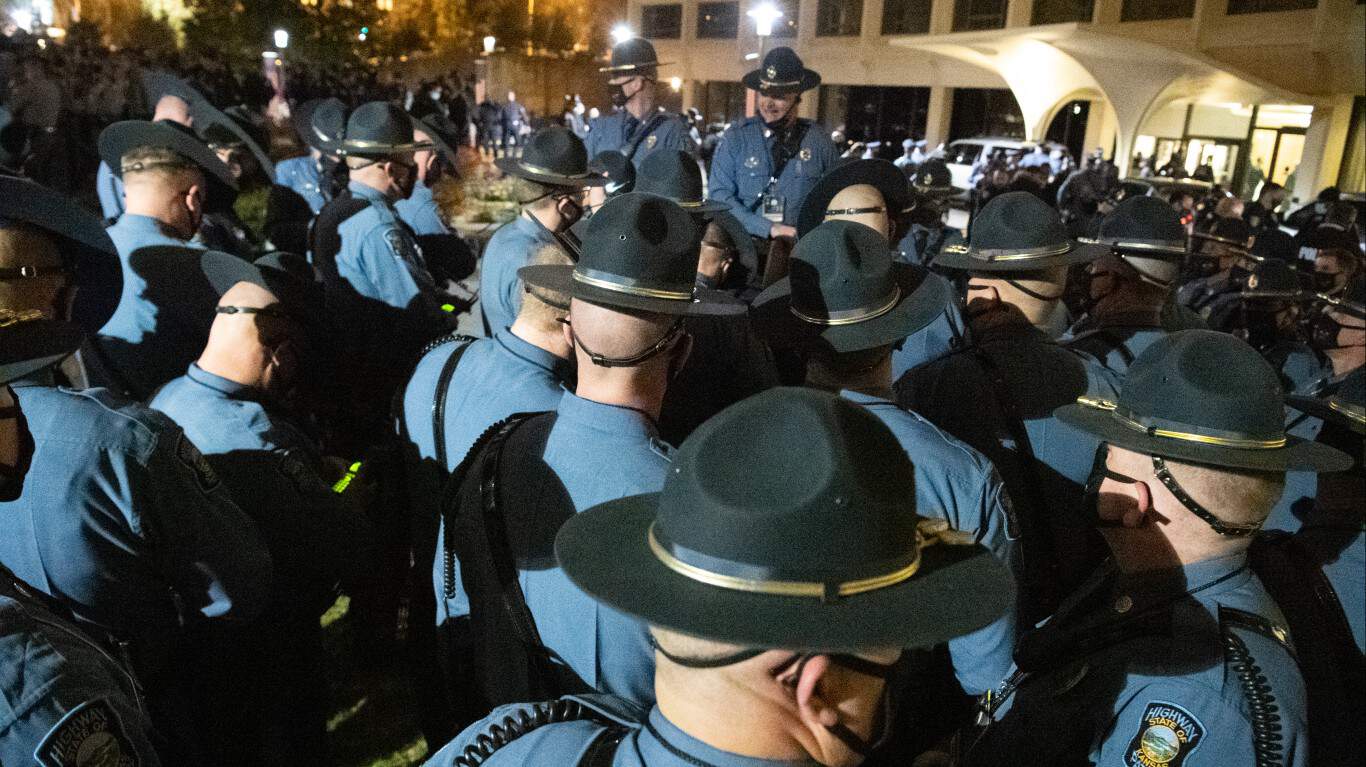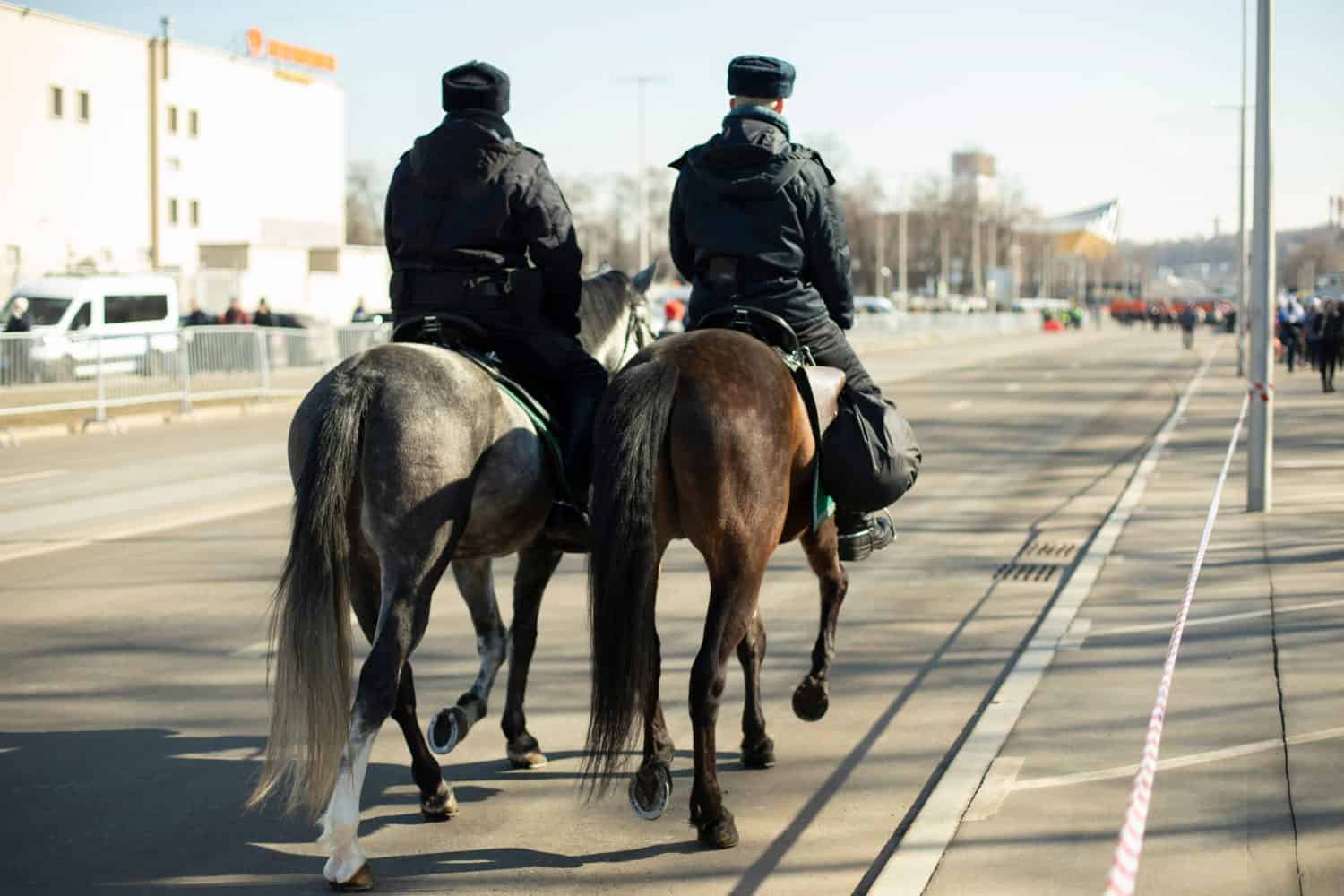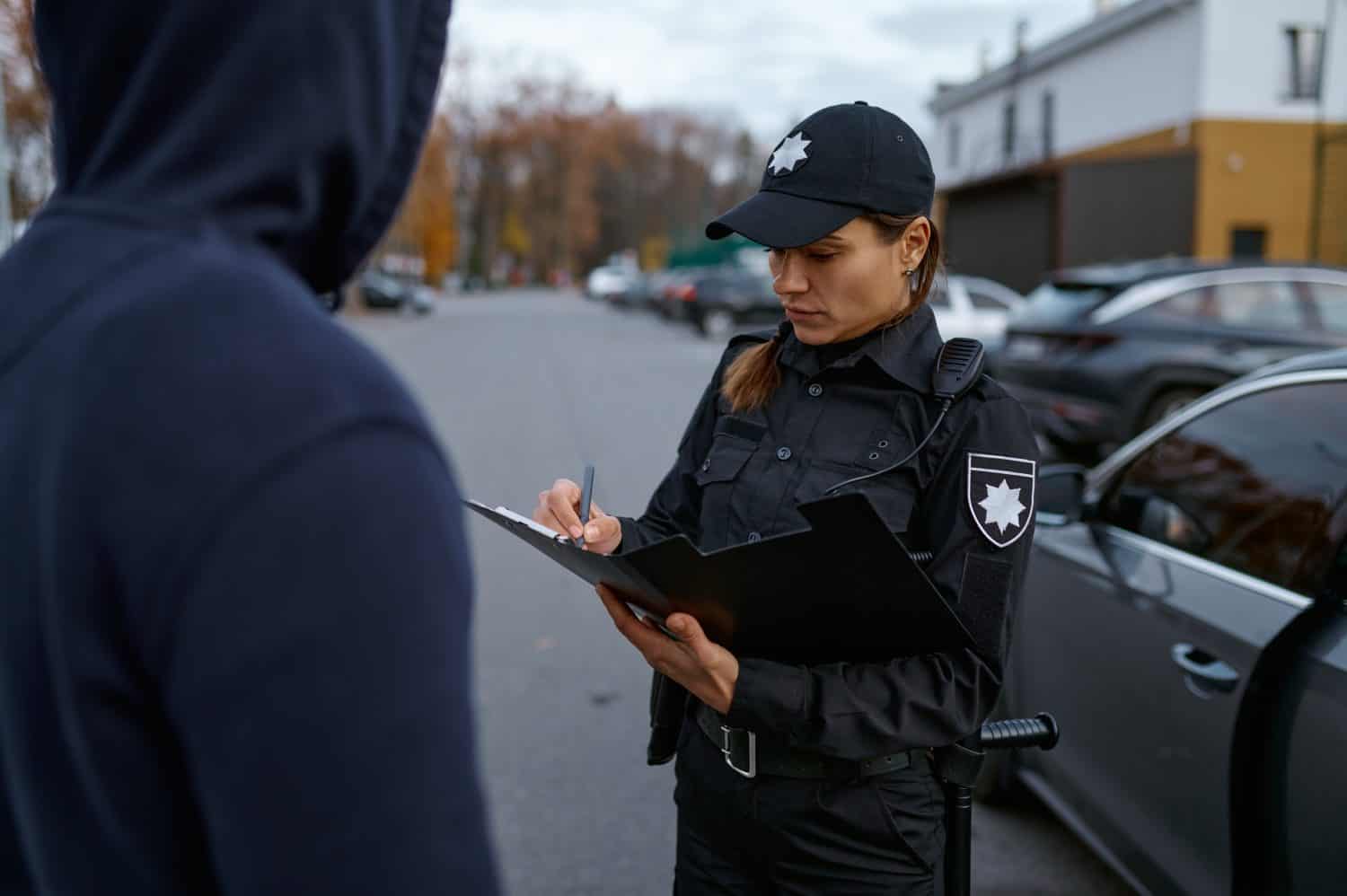
Being a police officer is tough enough, but it’s also one of the most politically debated jobs in America. What they get paid doesn’t just depend on their level of experience and training. It also depends on a mixture of economics, politics, and the culture and priorities of each state, If you’re considering becoming a police officer, we’ve got a breakdown for you of the average salary you could expect in each of the 50 states as of January 2025. Police officer salaries differ by region and state, but higher pay comes with more difficult working and living conditions. Retiring early is possible, and may be easier than you think. Click here now to see if you’re ahead, or behind. (Sponsor)
Key Points
Factors Influencing Officers’ Salaries

Police salaries aren’t one-size-fits-all. They change dramatically depending on where you work. You should take these into consideration before jumping at an opportunity in a higher-paying state. A higher paycheck might come with a higher cost of living, tougher working conditions, or other trade-offs that might not be the best choice for you and your family. Here are some examples of major influences on police salaries:
- Cost of living: Police departments pay more in cities and other places where prices are high. But you could live in a less expensive place at less pay and find you have an equal or better standard of living.
- State economy: Some states have a larger tax base and fund their police more generously than others.
- Budget priorities: Some states prioritize law enforcement while in others their budget is aligned with other needs. Of course, this can change over time as voters change who is in office.
- Unions and Collective Bargaining: In some states, strong police unions effectively bargain for higher wages and benefits for officers.
- Demand: Officers are more in demand in some states, so the government offers higher salaries to attract them there.
- Crime rates: An area with a high crime rate might offer higher salaries and more opportunity for overtime to attract the officers they need to work in challenging conditions.
Now we’ll see how this breaks down by region in January 2025.
Pacific States

With some of the highest living costs in the country, states like California and Washington know they have to offer highly competitive police salaries to keep pace with expenses for things like housing, transportation, energy, and food. In places like Alaska, police can be called on to handle emergencies miles away from the nearest backup in harsh, isolated conditions. In crowded places like Hawaii and Southern California, officers need greater cultural proficiency to work with diverse populations and out-of-state and foreign tourists. And of course, everybody knows this region of the country is also prone to major natural disasters that will keep police busy safeguarding the public.
- Washington: $70,389 ($33.84/hour)
- Alaska: $66,930 ($32.18/hour)
- Oregon: $65,709 ($31.59/hour)
- Hawaii: $64,570 ($31.04/hour)
- California: $61,334 ($29.49/hour)
Mountain States

The mountain states have difficult terrain and weather conditions as well as high speed limits in their vast open spaces. This means a lot of auto accidents. These states also have some of the highest rates of deadly police encounters in the country, fueled by a mixture of permissive gun laws, mental health struggles, and anti-government sentiment. The population in some areas, like the Front Range cities of Colorado, is growing rapidly, particularly with people moving in from crowded places like California. This brings a vibrant, diverse cultural scene to the cities but also fuels tensions and creates new law enforcement challenges.
- Colorado: $65,350 ($31.42/hour)
- Nevada: $63,286 ($30.43/hour)
- New Mexico: $60,226 ($28.95/hour)
- Wyoming: $59,738 ($28.72/hour)
- Idaho: $58,475 ($28.11/hour)
- Montana: $57,043 ($27.42/hour)
- Utah: $56,578 ($27.20/hour)
Southwestern States

This group of states tends to have above-average crime rates and at times a history of strained relations between the community and police officers. All but Oklahoma share a border with Mexico, so border control is a concern. Police in this region spend a huge amount of time dealing with drug cartels, human trafficking, and border-related crime.
- New Mexico: $60,226 ($28.95/hour)
- Arizona: $57,915 ($27.84/hour)
- Texas: $57,901 ($27.84/hour)
- Oklahoma: $57,384 ($27.59/hour)
Plains States

The cost of living is a lot lower in the Plains states than the more heavily populated parts of the country. As a result, salaries are often also lower here and it’s hard for police departments to recruit enough officers. Big cities like Omaha and Kansas City can offer competitive pay packages, but in small rural towns, departments struggle to attract and keep officers. On the positive side, high demand for police recruits means a lot of job security once you’re hired.
- North Dakota: $65,758 ($31.61/hour)
- South Dakota: $62,148 ($29.88/hour)
- Minnesota: $60,869 ($29.26/hour)
- Nebraska: $59,255 ($28.49/hour)
- Missouri: $58,295 ($28.03/hour)
- Iowa: $58,374 ($28.06/hour)
- Kansas: $55,427 ($26.65/hour)
Great Lakes States

There’s a wide range of police salaries in this region because of the economic differences between urban and rural areas, differences in crime rates, and more powerful police unions in large cities like Chicago. Some cities here are facing budget crises, raising questions about whether generous police pensions will continue to be sustainable long-term.
- Wisconsin: $62,730 ($30.16/hour)
- Illinois: $60,223 ($28.95/hour)
- Indiana: $59,138 ($28.43/hour)
- Ohio: $59,084 ($28.41/hour)
- Michigan: $54,168 ($26.04/hour)
Southeastern States

Police salaries in this region rank among the lowest in the U.S., largely because of lower living costs, weaker union influence, and a big pay gap between urban and rural areas. Cities like New Orleans, Atlanta, and Miami have higher crime rates and larger budgets, so they pay more to attract officers. Police officers in the Southeast don’t make as much as officers in other regions, but steady job demand, a lower cost of living, and a warm climate are attractive factors for new officer recruits.
- Virginia: $61,615 ($29.62/hour)
- Alabama: $56,330 ($27.08/hour)
- Tennessee: $56,407 ($27.12/hour)
- North Carolina: $56,480 ($27.15/hour)
- South Carolina: $57,671 ($27.73/hour)
- Mississippi: $58,859 ($28.30/hour)
- Georgia: $52,477 ($25.23/hour)
- Louisiana: $53,144 ($25.55/hour)
- Kentucky: $53,977 ($25.95/hour)
- Arkansas: $51,391 ($24.71/hour)
- West Virginia: $48,113 ($23.13/hour)
- Florida: $46,443 ($22.33/hour)
Mid Atlantic States

Officers in this region make more than their counterparts in the South and Midwest, but salaries still lag behind top-paying areas like New England and the West Coast. There are really big pay gaps between the cities and the rural areas. Police unions are strong here, making sure officers get good wages, pensions, and benefits. But the cost of living and the crime rate are high. Officer retention is a serious problem. Many officers start off in high-crime cities but leave a few years later for the suburbs or federal jobs with better pay and working conditions.
- New York: $67,992 annually ($32.69/hour)
- Delaware: $62,202 annually ($29.90/hour)
- Pennsylvania: $62,298 annually ($29.95/hour)
- New Jersey: $63,095 annually ($30.33/hour)
- Maryland: $61,678 annually ($29.66/hour)
New England States

Known for its picturesque small-town charm, New England is also quite wealthy and an expensive place to live, overall. This means a strong tax base, higher salaries for police, a favorable officer-to-citizen ratio, and a generally safer and less crime-ridden patrol area for officers. Police pensions and benefits are also generous. While much of New England is quiet and low-crime, large metropolises like Boston offer incentives and keep departments constantly hiring.
- Massachusetts: $71,100 annually ($34.00/hour)
- Connecticut: $70,100 annually ($33.65/hour)
- Vermont: $66,079 annually ($31.77/hour)
- Rhode Island: $60,863 annually ($29.26/hour)
- New Hampshire: $60,440 annually ($29.06/hour)
- Maine: $60,172 annually ($28.93/hour)
Take Charge of Your Retirement In Just A Few Minutes (Sponsor)
Retirement planning doesn’t have to feel overwhelming. The key is finding expert guidance—and SmartAsset’s simple quiz makes it easier than ever for you to connect with a vetted financial advisor.
Here’s how it works:
- Answer a Few Simple Questions. Tell us a bit about your goals and preferences—it only takes a few minutes!
- Get Matched with Vetted Advisors Our smart tool matches you with up to three pre-screened, vetted advisors who serve your area and are held to a fiduciary standard to act in your best interests. Click here to begin
- Choose Your Fit Review their profiles, schedule an introductory call (or meet in person), and select the advisor who feel is right for you.
Why wait? Start building the retirement you’ve always dreamed of. Click here to get started today!
Thank you for reading! Have some feedback for us?
Contact the 24/7 Wall St. editorial team.



